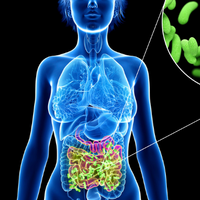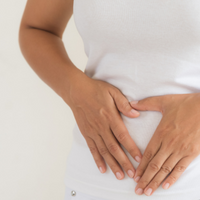Gut-Brain Connection
Your brain is the command-and-control center for an array of biological processes in your entire body. This amazing organ directly communicates with your digestive system on a continuous basis. An imbalance in the stomach could certainly cause physical and psychological distress in an unpredictable manner. Likewise, an an imbalance in the brain could negatively impact your gastrointestinal tract at any instant. Let's explore the fascinating gut-brain connection from scientific and social perspectives.
The Gastrointestinal System and Brain Connections
The central nervous system links your digestive system with the brain in a remarkable sequence of events. When you feel hungry, the stomach and intestines send specific signals to highly targeted areas of the brain. If you ignore these continuous signals, you could become more irritable, anxious, depressed and aggressive. Hunger is one of the most powerful sensations that the human body might feel. You should definitely listen to your gut throughout the day for proper mental and physical health. Postponing meals could lead to more intense feelings of hunger and emotional distress later in the day. By having a balanced microbiome inside your digestive tract, you can reduce any intense and abnormal cravings during the day.
A healthy appetite is typically regulated by microbiota inside the intestines. When the living organisms carry out their appropriate biological tasks inside the guts, you'll find it easy to follow a scheduled diet on a daily basis. Probiotics and prebiotics could optimize the homeostasis inside your entire gastrointestinal tract. You could maintain a healthy microbiome by eating a proper diet that's loaded with beneficial bacteria. For example, fermented food is an excellent source of probiotics for the human body. Milk and other dairy products are loaded with beneficial bacteria populations that optimize some of the most important sequences in the digestive process. Likewise, some plants and herbs are great sources for prebiotics, which feed the living probiotics inside your gut.
Stress, Anxiety and the Gut
Your gastrointestinal system is extremely sensitive to stress and anxiety that originate from negative emotions. When you feel anxious and apprehensive, your brain immediately sends certain signals throughout the entire nervous system. The stomach and intestines certainly have an array of highly sensitive nerves that respond to the slightest stimulation from the central nervous system. When you get butterflies in your stomach, stress and anxiety are probably the major contributing factors. You may also suffer from diarrhea and other temporary digestive issues because of events that make you nervous and excited. Therefore, it's important to understand and master the gut-brain connection in public settings. For example, speaking in front of a large crowd could make you extremely anxious. Interacting with strangers in a highly stressful situation could probably upset your digestive tract. You might unexpectedly have the urge to use the bathroom immediately before or during the speech. If you get too excited from positive emotions, you could become more vulnerable to some immediate gastrointestinal complications. Additionally, a sudden surge of blood into the intestines will immediately disrupt the delicate balance of the digestive process.
By managing your cognitive and digestive health in sync, you could avoid such awkward social situations involving strangers, co-workers, colleagues, friends and even family members. A continuous state of mental depression might also lead to chronic gastrointestinal problems in the long term. You could find a good balance between between emotional health and digestive wellness by following an appropriate diet and a healthy lifestyle.
An upset stomach may also lead to frustration, anger, outrage and other negative emotions. You'll become depressed and anxious by the frequent gastrointestinal issues that come up throughout the day. Instead of living a productive life, you might become excessively distracted by the digestive issues. Achieved through a proper diet and an active lifestyle, a healthy gut could significantly reduce some of the anxiety and depression in your mind. Meditation, relaxation and other natural forms of stress management could also holistically improve your mental and digestive health.








0 comments